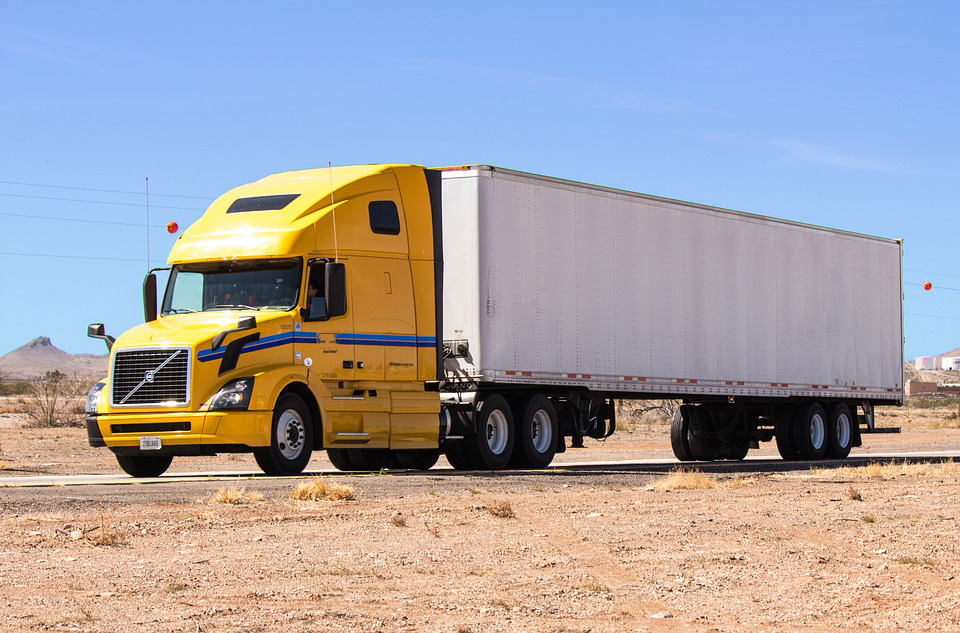Efficient Freight Transportation
FTL, or Full Truckload freight transportation, refers to shipping goods where an entire semi-trailer or truck is filled with a single customer’s freight. In FTL shipping, all the cargo space in the tractor-trailer is dedicated to one shipment moving from one place to another in one trip. FTL shipments are commonly used by manufacturers, distributors, and retailers who need to transport large volumes of goods efficiently across long distances. Filling an entire trailer reduces costs compared to splitting loads between multiple customers in less-than-truckload (LTL) shipments. Without having to stop and transfer cargo between destinations, FTL freight transportation provides faster delivery times as well.
Dry Van Shipments
The most widely used type of trailer for FTL shipments is a dry van trailer. Dry van trailers provide a climate-controlled but unrefrigerated cargo area well-suited for transporting a variety of non-perishable cargo. Common goods shipped using dry van FTL include boxed consumer goods, building materials, furniture, and industrial equipment. With their flexibility and high payloads, dry van trailers allow shippers to consolidate pallets and large pieces into a single shipment. This optimized loading results in lower freight costs compared to LTL for shipping high volumes of general cargo coast-to-coast or across borders.

Refrigerated Transport
Another major category is refrigerated FTL transport which utilizes temperature-controlled reefer trailers. Reefer trailers maintain precise temperatures vital for perishable commodities like meat, seafood, produce, baked goods, and pharmaceuticals. Reefer units cool or heat cargo holds to temperatures specified by shippers. On-board thermostats and monitoring ensure refrigerated loads remain within safe temperature ranges throughout transit. The controlled conditions of reefer FTL deliver freshness and quality for temperature-sensitive products shipped long distances.
Specialized Equipment and Cargo
Heavy Haul Transportation
Moving heavy industrial equipment, machinery, and construction materials requires specialized semi-trailers with robust reinforcements. Known as heavy haul FTL, these specialized trailers can transport overweight and oversized pieces that exceed normal size and weight limits. Specialized trailers have thicker floors, wider beams, and reinforced joints built to handle extreme weights in excess of 100,000 pounds. Equipment like cranes, drill rigs, wind turbine components, and construction vehicles are common heavy haul cargo. Careful route planning and permits coordinate moves of these massive loads down highways.
Bulk Material Shipping
Another niche of FTL shipping handles bulk commodities too voluminous for other freight modes. Examples include grains, aggregates like sand and gravel, lumber, steel coils and pipes, and liquids transported in tanker trucks. For bulk hauling, specialized equipment includes hopper bottom trailers, pneumatic tankers, grain hoppers, and live floor trailers that allow controlled dumping. The large payloads of bulk FTL help producers and distributors keep transportation costs low for shipping raw materials regionally or coast-to-coast.
Choosing an FTL Carrier
When choosing a carrier for an FTL shipment, there are several factors to consider related to equipment, service levels, and reliability. Carriers specializing in different cargo types have optimal assets, such as temperature-controlled trailers or specialized heavy haul capabilities.
Shippers handling time-sensitive loads focus on fast transit times between primary lanes. Carriers publish transit time estimates, with detailed tracking available. For shipments with unique dimensions, confirmed dimensions access and specialized tarping are valuable carrier qualifications.
Reliability factors include on-time percentages, damage rates, and service failure resolution. Carrier size influences lane coverage and availability. Smaller carriers may have stronger presence in certain regions. Technology enabling online shipping tools, shipment status updates, and document workflows creates smoother processes.
Carrier reputation, membership in CSR programs, and safety ratings provide confidence important cargo will reach its destination intact. Negotiating rates factor in dimensions, weight, and additional services to deliver savings on major transportation expenditures. Ultimately, the right carrier excels at moving specialized loads as efficiently and safely as possible.
Transportation Management Software
Managing a complex network of frequent FTL shipments handling diverse cargo types demands sophisticated technological support. Transportation management software (TMS) streamlines freight operations from freight classification and rating to dispatch, tracking, document workflow and freight payment processing. Advanced TMS integrates with carrier platforms for real-time status updates and automated dispatching. It provides a single dashboard view of the supply chain with tools to benchmark Performance, consolidate freight activity across multiple carriers, and automate manual tasks. Data-based insights optimize route planning, consolidation, backhaul opportunities and carrier selection. For shippers maintaining private fleets in addition to carrier utilization, TMS unifies load tendering, dispatch and fleet optimization. Analytics leverage shipment histories to identify inefficiencies, monitor Key Performance Indicators and drive continuous improvement. Integrations with accounting and warehouse management software deliver end-to-end visibility and process automation. Overall TMS maximizes efficiency of complex FTL networks.
Future of FTL Shipping
Emerging technologies continue enhancing FTL shipment visibility, efficiency and sustainability. Internet of Things (IoT) sensors in trailers monitor temperature, location, impacts and load status. Data uploads to cloud platforms in real-time for rapid issue identification and response. Soon autonomous trucks using computer vision and AI may navigate highways safely without human drivers.
Advances in telematics and fleet management optimize routes using predictive analytics considering traffic, weather and backhaul opportunities. Connected vehicles coordinate platooning to reduce aerodynamic drag and fuel usage. Electric or hybrid powertrains transition fleets from diesel to cleaner energy. Together, these innovations raise the bar for sustainability, safety and competitive advantage in full truckload freight transportation.
In conclusion, FTL shipping through specialized trailers and equipment has long been the most cost-effective method for transporting large freight loads. Technology and data insights now optimize operations to benefit shippers through faster transit times, reduced costs, and greater visibility and control over the supply chain. Looking ahead, innovation will further enhance efficiency and sustainability in moving bulk volumes of cargo across highways.

 Essential Guide to Visiting Seoul, South Korea
Essential Guide to Visiting Seoul, South Korea